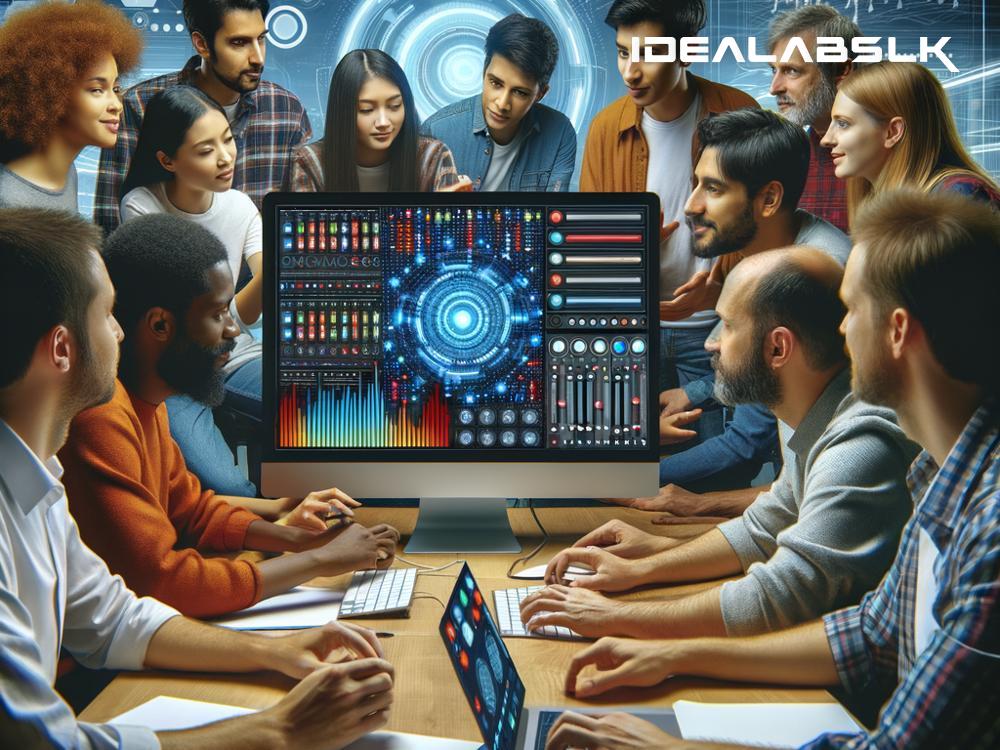Title: How AI Will Revolutionize Game Audio Design in 2024
In an era where video games are increasingly immersive, creating a world that feels alive is more critical than ever. It's not just about the graphics anymore; the sound plays an enormous part in bringing a game to life. From the ambiance of a bustling city to the subtle footsteps of an enemy sneaking up behind you, a game's audio adds depth and realism to the experience. As we step into 2024, Artificial Intelligence (AI) is set to revolutionize game audio design, transforming how sounds are created, implemented, and experienced in games. Let’s dive into how this exciting transformation is unfolding.
Personalized Audio Experiences
Imagine playing a game where the audio dynamically adapts to your actions. AI is making this possible by learning from your gameplay style and preferences, tailoring the sound effects and music to enhance your experience. If you’re sneaking through a dark forest, the game might amplify eerie whispers and rustling leaves to heighten the tension. For a player charging headfirst into battle, the soundtrack might become more intense to match their adrenaline. This level of personalization will make every playthrough unique, deepening the player’s immersion and emotional connection to the game.
Enhanced Sound Quality with Less Effort
Creating high-quality game sounds traditionally requires a lot of time and talent. Developers record numerous takes of a single sound effect, like a door opening, to get it just right. AI is set to streamline this process by generating and refining sound effects on its own. By analyzing a vast library of sound data, AI can produce a wide variety of high-quality effects that can be fine-tuned to fit any scene or action. This not only speeds up the sound design process but also allows for greater creativity and experimentation, as developers can quickly generate sounds that were previously impossible or too resource-intensive to create.
Smarter Voice Acting
Voice acting gives characters personality and depth, but it’s a resource-intensive process that involves hiring actors, recording multiple takes, and editing the best ones into the game. AI is revolutionizing this aspect by generating realistic voice acting on the fly. Using sophisticated voice synthesis technology, AI can create speech that sounds remarkably human, complete with emotional inflections and accents. Game developers can tweak the AI’s output to match the character's mood or situation, making the dialogues feel more authentic and responsive to the player's actions. This technology will not replace human voice actors but can supplement their work, especially for background characters or dynamic dialogues that change based on game events.
Adaptive Ambient Sounds
Ambient sounds - like wind rustling through trees, city traffic, or a distant thunderstorm - are essential for an immersive game environment. However, creating these sounds can be complex and time-consuming. AI is on the verge of changing this by generating layered and dynamic ambient soundscapes that react not just to the player’s location, but also to their actions and the game’s events. For instance, the ambient noise in a city might grow louder and more chaotic as a chase scene accelerates or become subdued and tense during a stealth mission. This adaptability makes the game world feel more real and reactive, improving the overall gaming experience.
Real-Time Sound Effects Modification
One of the most exciting prospects of AI in game audio design is the ability to modify sound effects in real-time based on environmental factors within the game. For example, the echo of a gunshot will sound different depending on whether the player is in an open field or a narrow alley. AI can analyze the game environment and instantly adjust the sound effects to match, enhancing realism and immersion. This dynamic approach can apply to virtually any sound in the game, from footsteps on different surfaces to the roar of an engine, offering an unmatched level of audio detail.
Conclusion
As we look to 2024, it's clear that AI is set to reshape the landscape of game audio design profoundly. By enabling personalized audio experiences, streamlining sound production, and enhancing the realism of game environments, AI will not only make games more immersive but also more accessible for developers. This technology promises to open new creative avenues, allowing developers to focus on innovation and storytelling. For players, this means richer, more engaging game experiences that feel truly alive. The revolution in game audio design is just beginning, and it's one that will undoubtedly redefine our expectations of what video games can be.

